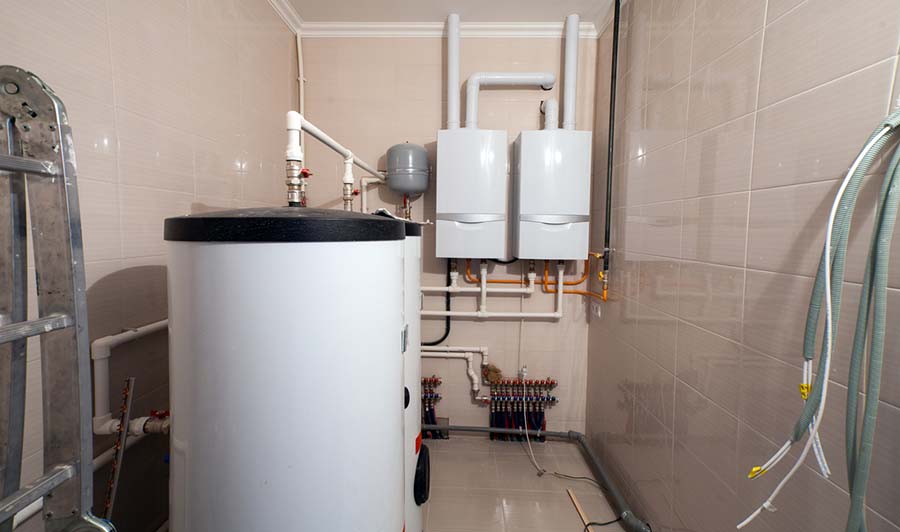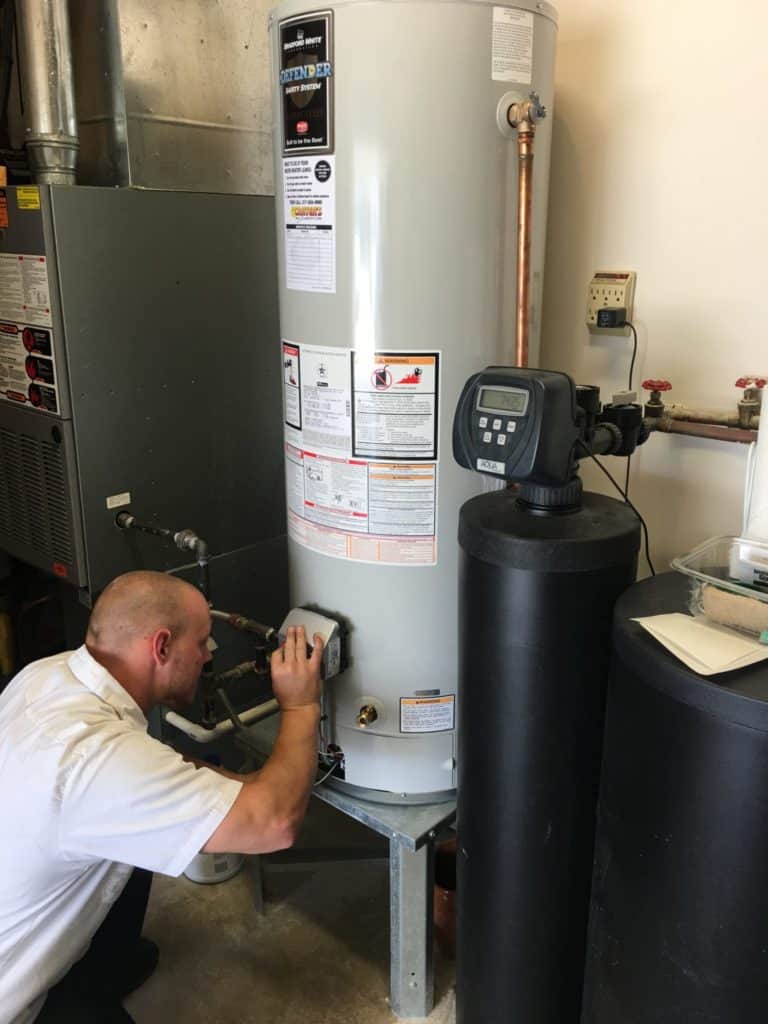Handling the Routine Hot Water Heater Crisis Events
Handling the Routine Hot Water Heater Crisis Events
Blog Article
What're your thoughts on Common Hot Water Heater Problems?

A hot water heater is among one of the most essential basic devices that can be located in a house. With hot water heater, you do not need to experience the tension of home heating water by hand whenever there is a requirement to take a bath, wash, or the recipes. There is always an opportunity that your water heater would act up as with the majority of mechanical gadgets.
It is necessary to note any little malfunction as well as tackle it swiftly prior to points get out of hand. Many times, your hot water heater begins to malfunction when there is an accumulation of sediments as a result of continual usage. As a safety measure, regular flushing of your water heater is suggested to prevent sediment build-up and stop useful failing.
Usual hot water heater emergency situations as well as how to handle them
Dripping hot water heater container.
In this circumstance, you must transform off your water heater, allow it to cool down, as well as meticulously look for the source of the problem. At times, all you require to do is to tighten a couple of screws or pipeline links in cases of small leakages. If this doesn't work and the leak lingers, you might need to employ the solutions of a service technician for a suitable substitute.
Fluctuating water temperature.
Your water heater might start creating water of different temperatures typically ice cold or hot hot. There could be a need to replace either the thermostat or the home heating device of your water heating unit.
Insufficient warm water
Dealing with a not enough supply of hot water can be irritating. It might be that the water heater can not sustain the hot water demand for your house. To take care of this issue, you might attempt to change your heating unit's temperature dial as well as wait on a couple of mins. If the problem persists, you can request the help of a professional plumber. Conversely, you might update your water heater to one with a bigger capacity.
Stained or stinky water
When this takes place, you require to recognize if the concern is from the water or the tank source. If there is no amusing smell when you run cold water, then you are specific that it is your water heater that is faulty. The odiferous water can be triggered by rust or the build-up of germs or debris in the water heater storage tank. You can try flushing out your container or changing the anode if the problem lingers as soon as you observe this. The function of the anode is to clean germs from your tank. Because the anode rod substitute needs a detailed knowledge of your water furnace, you will need the assistance of an expert.
Verdict
Some homeowners ignore little caution and minor faults in their hot water heater device. This only results in more damage and a possible full break down of your home appliance. You need to take care of your hot water heater faults as soon as they come up to avoid more expenses and unnecessary emergency problems.
With water heating systems, you don't require to go through the stress and anxiety of home heating water by hand every time there is a demand to take a bathroom, do the washing, or the recipes. Your water heating unit could begin generating water of different temperatures typically ice chilly or scalding hot. It might be that the water heater can not sustain the warm water demand for your apartment or condo. If there is no amusing odor when you run cold water, after that you are particular that it is your water heater that is malfunctioning. The odiferous water can be caused by rust or the buildup of bacteria or debris in the water heating unit storage tank.
What’s Wrong With My Water Heater?
Not Enough Hot Water
You probably encounter this problem in the shower or while washing dishes. As you run your water, you’ll notice it starting to cool down. Turning up the hot faucet may not work, or it may only heat the water for a short period. Your hot water probably comes back and works normally one or two hours after you use it up.
If you’ve never had enough hot water, your heater may be too small for your home. If you haven’t had a problem until recently, there’s probably something’s wrong with your heater’s thermostat. Try adjusting it to see if you can feel a difference. Even if the thermostat’s working, the heating element itself could have burnt out. It’s also possible that a clog has restricted water flow into or out of the heater. Luckily, none of these problems are hard to fix, as long as you call them in early.
Water is Too Hot
Unregulated water heaters can make water dangerously hot. You probably have this problem if you’ve been scalded by your hot water. It’s also a likely culprit if you have trouble getting your faucets to produce a comfortable temperature. This problem is easy to fix, but it can also be a serious health hazard if you don’t address it. If you think your water is too hot, don’t doubt yourself; look into it!
Start by finding your heater’s thermostat and mark its position with a pen. Turn the thermostat to a cooler setting. Wait a couple hours to see if the problem is solved. If it isn’t, listen for boiling in the tank and look for water that comes out of the faucet steaming. In those cases, your temperature-pressure relief valve may be malfunctioning. This is a serious problem that can be dangerous, so you should have it looked at right away.
Discolored or Smelly Water
If all your water looks rusty or smells weird, there’s probably a problem with your pipes. If only your hot water looks weird, however, your water heater is probably at fault. Hot water discoloration comes in several varieties. It could look orange or brown-ish, taste rusty, or feel grainy. It could also look yellow or green-ish and taste gross or feel slimy. Either way, it’s a sign that there’s something wrong with your water heater’s tank.
Usually, hot water discoloration means sediment has built up in your tank. Sediment is made up of hardened minerals that accumulate on the inside of the water heater’s walls. When enough sediment builds up, it causes all kinds of problems–including your discolored water. Try flushing your water heater tank to clean out built up sediment. If the water still tastes rusty, your tank’s rust-preventing anode rod may have worn out. A pro can replace an anode rod easily, but without one, your tank could rust beyond repair relatively quickly.
Leaking
Water heaters can leak from several different places, and each leak means something different. If the leak is coming from a pipe above the heater, it’s possible the tank itself hasn’t been compromised. The cold inlet, hot outlet, and T&P pipes could all leak from above. Try tightening the problematic valve. If that doesn’t work, then the valve or pipe will have to be replaced.
If the leak is coming from the bottom of the tank, it’s important to determine exactly where it is. The leak could be coming out of the drain valve or your T&P valve below the tank. You can replace those valves and preserve the tank itself. If you notice the water tank itself leaking, however, that probably means it’s corroded beyond the point-of-no-return. Leaking water heaters are a big deal, so you should get yours replaced ASAP.
https://www.punctualplumberdallas.com/blog/whats-wrong-water-heater/

We hope you liked our article about Common Hot Water Heater Problems. Thank you for taking a few minutes to read our blog. For those who liked our blog posting if you please remember to pass it around. I praise you for your time. Visit us again soon.
Schedule Today! Report this page